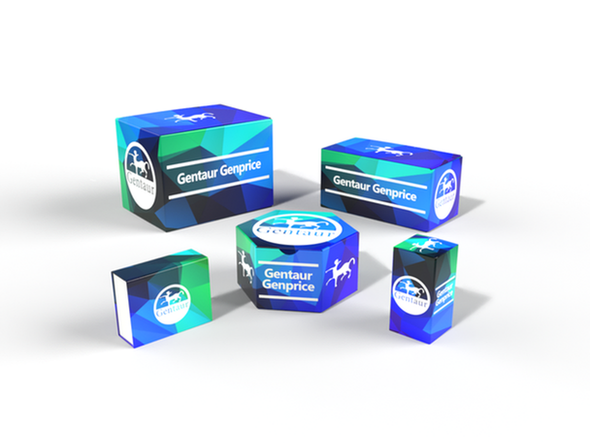740
Human Follistatin Like Protein 1 (FSTL1) ELISA Kit | AE63088HU
- SKU:
- 740-AE63088HU
- Availability:
- Usually ships in 5 working days
Description
Human Follistatin Like Protein 1 (FSTL1) ELISA Kit | AE63088HU | Gentaur UK, US & Europe Distribution
Species Reactivity: Human (Homo sapiens)
Abbreviation: FSTL1
Alternative Name: FLJ50214; FLJ52277; FRP; FSL1; follistatin-related protein
Application: ELISA
Range: 31.25-2000 pg/mL
Sensitivity: 12.8 pg/mL
Intra-Assay: ≤6.0%
Inter-Assay: ≤9.1%
Recovery: 1, 08
Sample Type: Serum, Plasma, Other biological fluids
Detection Method: Sandwich
Analysis Method : Quantitive
Test Principale: This assay employs a two-site sandwich ELISA to quantitate FSTL1 in samples. An antibody specific for FSTL1 has been pre-coated onto a microplate. Standards and samples are pipetted into the wells and anyFSTL1 present is bound by the immobilized antibody. After removing any unbound substances, a biotin-conjugated antibody specific for FSTL1 is added to the wells. After washing, Streptavidin conjugated Horseradish Peroxidase (HRP) is added to the wells. Following a wash to remove any unbound avidin-enzyme reagent, a substrate solution is added to the wells and color develops in proportion to the amount of FSTL1 bound in the initial step. The color development is stopped and the intensity of the color is measured.
Product Overview: FSTL1 encodes a protein with similarity to follistatin, an activin-binding protein. It contains an FS module, a follistatin-like sequence containing 10 conserved cysteine residues. This gene product is thought to be an autoantigen associated with rheumatoid arthritis.FSTL1 encodes a deduced 308-amino acid protein with an N-terminal signal peptide of 20 amino acids. The number and distribution of the cysteine residues supports the existence of several intramolecular disulfide bridges.Immunohistochemical analysis demonstrated increased expression in Cd90 (THY1) -positive fibroblasts, particularly early in CIA. Monkey fibroblasts transfected with human FSTL1 spontaneously secreted more IL6, and human monocytes transfected with FSTL1 and stimulated with mitogens expressed higher IL1B, TNF, and IL6.
Stability: The stability of ELISA kit is determined by the loss rate of activity. The loss rate of this kit is less than 5% within the expiration date under appropriate storage condition. The loss rate was determined by accelerated thermal degradation test. Keep the kit at 37°C for 4 and 7 days, and compare O.D.values of the kit kept at 37°C with that of at recommended temperature. (referring from China Biological Products Standard, which was calculated by the Arrhenius equation. For ELISA kit, 4 days storage at 37°C can be considered as 6 months at 2 - 8°C, which means 7 days at 37°C equaling 12 months at 2 - 8°C) .










